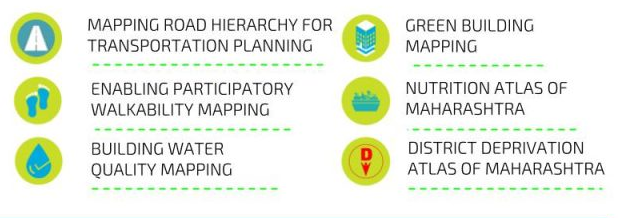
In 1998, merger of three erstwhile organizations under CDSA umbrella: the Institute for Rural Development (IRD), the Institute for Habitat and Environment (IHE), and the Institute for Community Development (ICD) resulted into to the establishment of the Institute for Sustainable Development (ISD). ISD’s core areas of work include sustainable livelihoods, participatory governance, human development, comprehensive mobility planning, urban and regional development and management, development informatics, and natural resource management. Faculty and staff of CDSA associated with ISD engage in research and consulting across a wide range of development issues. Insights and experiences gained from ISD’s projects are translated into training modules and courses offered at the School of Development Planning (SDP), with a focus on micro and multi-level planning.
In its dual role, ISD serves as the primary source of fund generation for CDSA while also acting as a vital channel for transferring CDSA’s expertise and knowledge to governmental, non-governmental, bilateral and multilateral organizations.
ISD has conducted a number of consultancies and training programmes over the past 49 years. Feel free to browse a partial list of consultancies and projects done by Institute for Sustainable Development.
This ISD expertise has also culminated into a creation of some week and month-long training programmes in following areas. ISD conducts these capacity building programs to improve on skills, knowledge and sensitivities of the participants.
Topics covered in short courses
- Natural Resource Management, (land, water, forest)
- Rural Development, (village, watershed, eco development, district planning, social inputs for area development, especially food security, health and education.)
- Urban Management (informal sector, environmental status evaluation, environmental risk assessment, traffic and transportation planning, urban regional and development planning, housing, land markets)
- Rural and Urban livelihoods (poverty assessment, area typologies for operationalising action plans)
- Participatory Governance (implementation of the 73rd and 74th amendments and participatory methodologies for decision making.)
We would like your help to organize more and more of these workshops.
